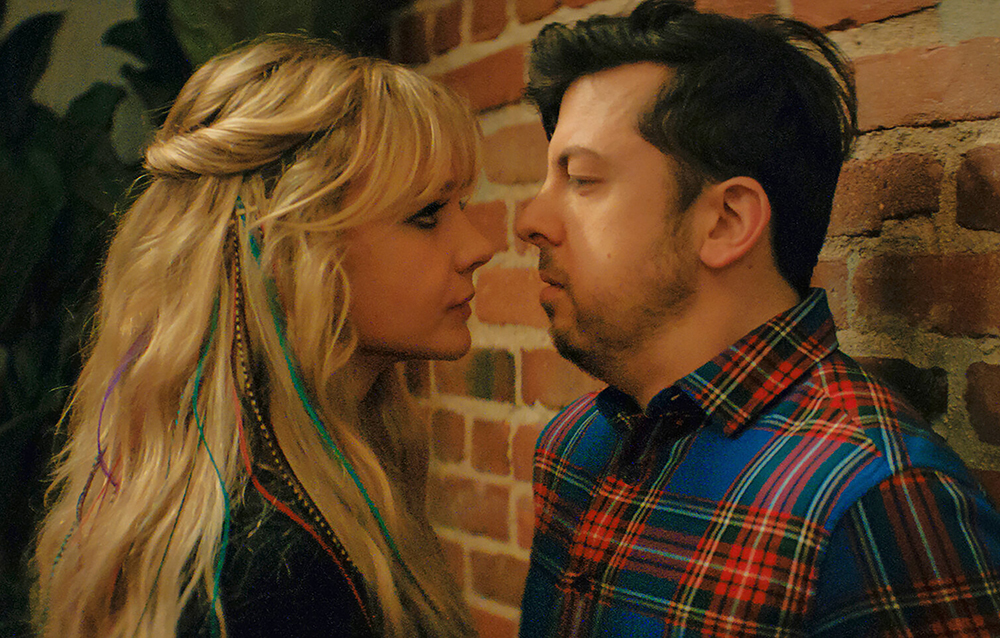I’m writing this article as a cis, white male. I’m not editorializing, but feel it is necessary to set the stage. Because different people might likely have different reactions to this movie. Some may feel it all too deeply and familiarly, while it may be foreign to others. It’s an examination of sexual abuse and toxic masculinity and is overtly feminist. But that is pigeonholing the film. It’s also extremely human, a sad fact I feel it necessary to mention. The film’s protagonist, Cassandra (Mulligan) has the cockiness and confidence all traumatized persons must carry. However, Fennell’s winning argument is that this hardness is a symptom of a broken woman, not one flourishing in revenge or blood-lust, such as The Bride in Tarantino’s excellent “Kill Bill.”
Feeling a movie’s totality
What makes “Promising Young Woman” great is that while its protagonist’s aim is clear, its emotions are less so. In the aforementioned “Kill Bill” there’s a degree of satisfaction about watching its antihero dispatch bloody justice (after all, her victims are killers—like herself—that have it coming). But Fennell and Mulligan don’t present a straight-up revenge tale in “PYW” It contains tough emotions. There’s always an ickiness when laying bare bad human behavior. This is especially true of a film like this, which seeks to take down patriarchy and toxic rape culture by getting its perpetrators to realize they are doing it. And when multiple characters who had just tried to take advantage of a pretend-drunk Cassandra profess, “but I’m a nice guy,” one has to wonder if they in fact believe this. Christopher Mitnz-Plasse’s Neil glimpses the horror of it when he gasps, “are you saying I’m a predator?” with complete incredulity. He doesn’t beat women, or use demeaning stereotypes. Is this what makes him nice? It’s these icky irrationalities that Fennell allows us—rather makes us—feel, to her benefit.
But there’s more to Fennell’s narrative than this. There’s a legion of other enablers, some of them women, who disbelieve—or disregard—women who say they’ve been raped. There are obviously multifaceted reasons for this, and Fennell is eager to explore them all. There’s the medical school dean (Connie Britton) who “doesn’t want to ruin every young man’s life who has an accusation.” And there’s Madison (Allie Brie), who “wasn’t the only one” who didn’t believe Cassandra’s friend Nina after her sexual assault. Nina was drunk, you see. And she was promiscuous. Maybe she didn’t fully remember the events that happened. Do men who drink a lot have memory problems? Are men who sleep around “promiscuous?” These are the unsettling questions “PYW” makes us uncomfortably ask.
Messaging that hits the mark

However there’s more. And the way Fennell sets up a potentially healing relationship—before she torpedoes it—with a doctor, Ryan (Bo Burnham), who always liked Cassandra in medical school before she dropped out—makes the film’s events stick with you. At this point we’ve seen how nice Ryan can be to her. And we’ve seen the way “PYW” sweetly scores a trip to the pharmacy between the two with Paris Hilton’s infectious “Stars Are Blind” that mirrors her burgeoning feelings towards him (“If you show me real love, baby, I’ll show you mine.) Yet when he invites her up, innocently, she starts to act like she’s on those faux-drunken assault dates again. She quickly retracts, walking away before kicking a garbage can over, furious at herself for blowing this real opportunity. Ryan cares for her. But later, when his veil drops, it might be our heart that breaks harder than Cassandra’s, because we should have seen it coming, but didn’t.
While Fennell is often a bit too forward in her messaging, what stings most about “PYW” is that she really isn’t off the mark. Compare the toxicity of this film’s males to the toxicity on innumerable social media threads when a woman or member of the LGBTQ community is the subject of discussion rather than a man. The movie’s hostilities towards women seem over-the-top. But they’re really not. And I think that is the saddest part of this movie. When Cassandra kicks that trash can I wanted her to be all right; but maybe it’s too late. And a question I’ve been asking myself thinking about this film today was: is there really a Nina? We’re told she died after dropping out of medical school. I’m assuming she took her own life. But maybe this really happened to Cassandra and it’s her who died—in every way that matters—those seven years ago. The film is ripe for analysis.
Falling in love with Fennell’s laid-bare approach

Fennell’s picture is obviously a big ask. It asks you to walk in Cassandra’s (women’s) shoes, and to question things we may have taken for granted. It had this affect on me. Like 2022’s “She Said,” it has moments that crawl under your skin and make you question your worldview. And while “PYW” is heralded for its archetypal revenge stylings and cinematography (which it deserves), its true clincher is that through Cassandra’s eyes and beneath her armor, you feel what destroyed innocence really feels like. Many things happen to Cassandra along the way (and if you haven’t seen the film, I won’t spoil the ending, which causes mixed feelings), but no one—save Ryan, who’s real crime was apathy—asks if she’s okay. “PYW’s” villains gaslight, blame, and beg—but it’s all for themselves. No one ever apologizes, and maybe they can’t. It’s easier to sweep toxic behavior under the rug—and double down on defenses—than to change an identity or a culture. Even more so when everyone around you is telling you these things don’t happen or worse—to just get over them.
“Promising Young Woman” is a great film. Its title says it all. And while I don’t feel “Saltburn” will have the emotional impact and takeaways of this film, Fennell is one to watch out for. Stripped-down films hit harder than those dependent on artistry. And there’s no more stripped-down narrative I can think of in the last few years than Fennell’s first, biting takedown of trauma and all the things that enable it.



